


Keywords: sequence analysis; segmentation; professional and educational trajectories
Most widely used information on changing trends in the supply and demand for labour is provided through cross-sectional research. However, in spite of the fact that cross-sectional data (e.g. the Labour Force Survey conducted by Eurostat) describes the working, unemployed and economically inactive population in great detail, it is still not sufficient to quantify the influence of individual choices on life cycle trajectories. The main purpose of this article is to elaborate on the concept of trajectories in social sciences using empirical evidence and utilise this theory in order to describe the life cycle of two age groups with reference to educational and professional activities. To the author’s best knowledge, this work is one of the first applications of sequence analysis using data collected in Poland from The determinants of educational decisions panel study. The paper focuses mainly on presenting the research method, and to a lesser extent on the results. Two age groups were selected for the analyses: 35- and 65-year-old respondents. In both age groups, a segment of respondents with long and stable periods of economic inactivity was identified. Using a logistic regression model, the probability rate of belonging to the segment of lengthy inactivity was calculated. For both age groups there was a strong (negative) effect of education, which reduced the chances of intensive inactivity. Gender, as a separate factor, was not statistically significant in either group. The 35-year olds who did not attend kindergarten and women in low and semi-skilled professions (belonging to the 6th and higher ISCO88 occupational groups) were characterised by a significantly higher risk of becoming inactive.
More...
Keywords: sociology of education; parents; occupational aspirations; students
The article presents the career aspirations of parents of primary school students in relation to their children. In years 2011 and 2014 twice was examined the same sample (of approximately 5000 parents). Aspirations of parents are concen- trated mainly in professions requiring higher education and training, and they are very stable. There is a clear division in the professions of „female” and „male” types. Parental aspirations have not noted the impact of change manners, and situation in the labour market. The research results are discussed on the background of the results of similar studies conducted in recent years.
More...
Keywords: ability estimates; guessing; IRT; 2PLM; 3PLM
Modern approaches to measuring cognitive ability and testing knowledge frequently use multiple-choice items. These can be simply and rapidly scored without problems associated with rater subjectivity. Nevertheless, multiple-choice tests are often criticized owing to their vulnerability to guessing. In this paper the impact of guessing was examined using simulation. Ability estimates were obtained from the two IRT models commonly used for binary-scored items: the two-parameter logistic model and the three-parameter logistic model. The latter approach explicitly models guessing, whilst the former does not. Rather counter-intuitively, little difference was identified for point estimates of ability from the 2PLM and 3PLM. Nevertheless, it should be noted that difficulty and discrimination parameters are severely downwardly biased if a 2PLM is used to calibrate data generated by processes involving guessing. Estimated standard errors for ability estimates also differ considerably between these models.
More...
Keywords: library resources; lower-secondary school; popular literature; reading; teaching Polish language and literature
The paper presents selected aspects of the research project Teaching Polish language and literature in lower-secondary school in the light of the new core curriculum, carried out by the Educational Research Institute in 2013, concerning the issue of popular literature collections most frequently read by teenagers, in lower-secondary school libraries. The survey covered a random sample of 73 librarians and 60 lower-secondary schools from five voivodeships. The percentage of schools that do not have collections of this kind, have fewer or more than 100 books in the categories of popular literature identified by Zofia Zasacka, and the percentage of students who borrow these books are presented in the research report. About 10% of lower-secondary school libraries have diverse collections, attractive for their readers. Paradoxically, the most popular reading among boys, i.e. fantastic literature with adult characters, is also the most poorly represented in the libraries.
More...
Keywords: teaching literature; barriers of literature reception; digital native; unread literature; recent literature; motivation for reading; critical workshop
The article poses a question regarding the space for interpretation of poetry, especially facing the challenge of contemporary literature teaching. The author is highly influenced by Marjorie Perloff’s remarks and tries to reconstruct the principles which would make it possible to read a poem closely. In the final part of the article the author considers two methods for stimulation of close reading in the particular light of New Media developments.
More...![Alice in the Land of Inequality Book review: Alicja Zawistowska, Horyzontalne nierówności edukacyjne we współczesnej Polsce [Horizontal Educational Inequality in Contemporary Poland]. Warsaw: Scholar, 2012, 229 pp.](/api/image/getissuecoverimage?id=picture_2013_29308.jpeg)
Keywords: educational inequalities; horizontal inequalities; educational careers; education in Poland
The author starts with a review of theories of educational inequality formulated during the last half-century. This review is complete and up to date and is therefore a useful resource for researchers and educational policy makers. For the purpose of analysis of empirical data the author has chosen a horizontal approach which examines factors influencing choice between available educational paths. The analyses presented in the book include (a) the impact of social background on middle school choice decisions (whether public or private), (b) determining factors for secondary school choice after completing middle school and (c) choice of university and field of study at tertiary level. Although the findings presented are fragmentary and do not provide a picture of the whole system, the book convincingly supports the benefits of a horizontal approach to understanding and explaining educational inequality in Poland. These shortcomings result from the weakness of the available data which were collected in studies following different methodological perspectives in some cases restricted to local communities. Despite these limitations, the book is a valuable summary of current knowledge about horizontal inequalities in Poland and at the same time identifies areas which require further research.
More...
Keywords: didactics of literature; reinterpretation of myth; school reading; antiquity; Euripides; Alcestis; Odojewski
The article presents the review of literary, opera and painting works undertaking the topic of Greek myth of Admetos and Alcestis. Its aim is to make the reader sensitive to different interpretations of ancient tale in Euripides drama beginning with attempts to soothe controversial story, through creative supplements until the reinterpretation of myth in Władysław Odojewski novel Oksana. The author recommends Oksana for school reading as the book that puts the difficult questions and can provoke young people to deeper reflexion.
More...

Keywords: review;
More...
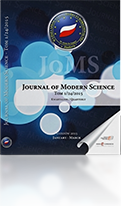
Keywords: non-formal competences; surveys of employers; competences of employees; expectations of employers; HR management
In connection with the growing problems in the labor market regarding the employment of serial workers, we are increasingly encountering various studies seeking the causes of this phenomenon. The presented article contains an analysis of the survey results of a survey nature, the purpose of which was to check what basic groups of non-formal competences are considered to be important among selected employers and how the real level of competencies of current employees is shaped in the assessment of the management. Are the declared expectations of employers related to the competences of really employed staff? What are the most common reasons for difficulties when looking for new employees? Do employers really look for a worker who meet the certain criteria? The research was of a survey nature. They were carried out among 32 SME companies from the Mazowieckie Province. The questions were addressed to the owners or representatives of the top management of the company. The questionnaire contained questions regarding the delineation of the scope of expected competences and a description of the sources of difficulties encountered while seeking employees for work. The results indicate that the ability to cooperate is valued first and foremost. In the case of rank-and-file employees, mainly in the team falling, but also with managers The managerial staff first of all require the ability to cooperate with colleagues. The perfect employee? Non-formal competences – expectations and reality 56.3% of employers declare difficulties when hiring serial employees. In the case of the managerial staff it is 37.5%. The conclusions from my research and references to the analyzes of other authors quoted by me indicate that there are many common tendencies regarding both the expected competences and difficulties in employing the appropriate employees.
More...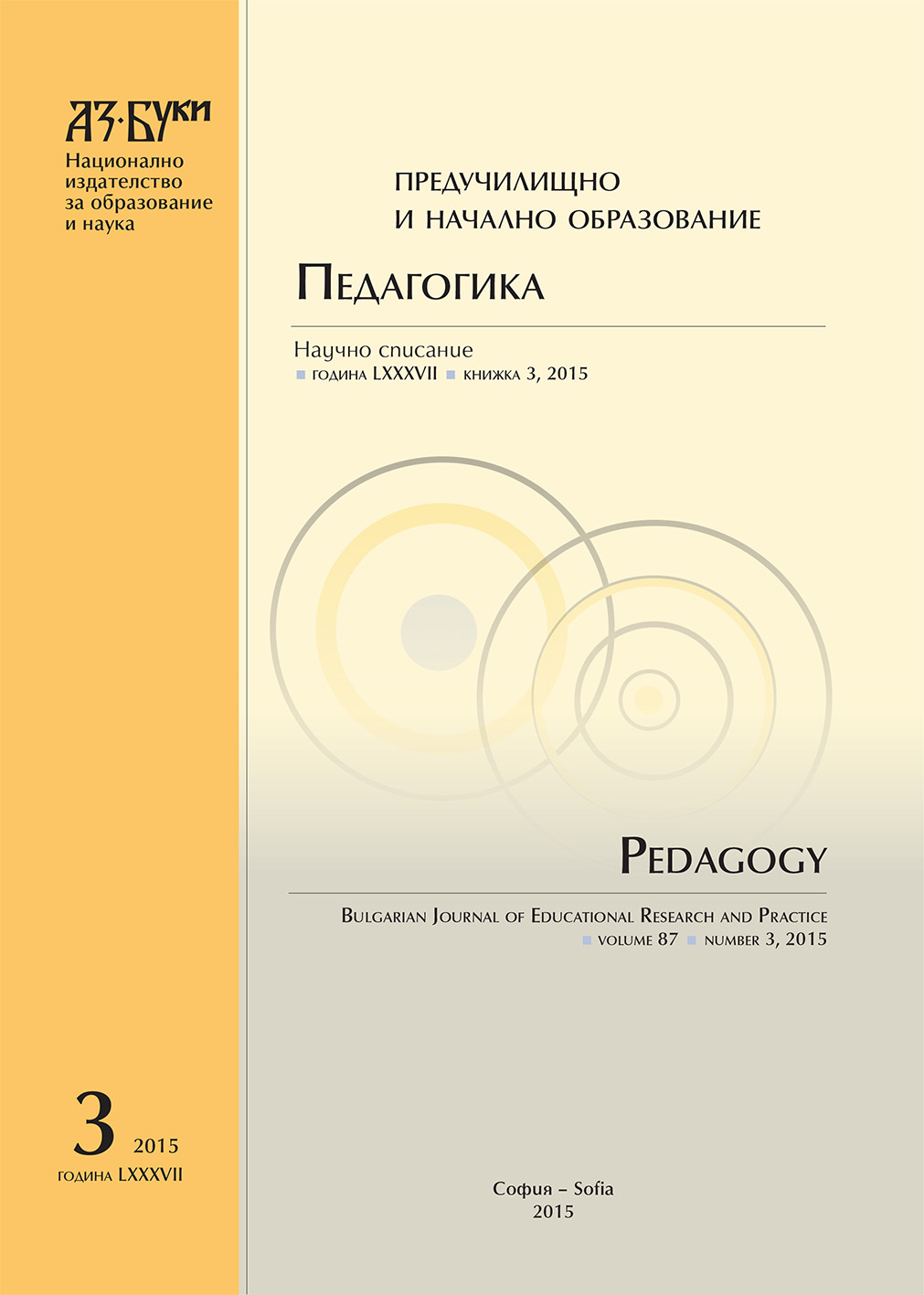
In this paper we present in what way the teachers that are in the turn of mid-life exist in the space of your own home (here household responsibilities, relationships with children, with the husband, etc.) and as functioning it is being transferred to their career, the commitment to it and relationships with students and teachers.
More...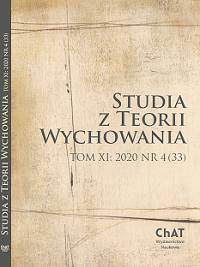
Keywords: external exams; the guessing effect; "failing" the lower secondary school exam; education reform
The article has critically assessed the information sent to the public, including teachers, on the results of external examinations contained in the Central Examination Board (CEB) reports. Basing on the analysis of two sources of information decoded from the CEB reports and the analysis of the database containing the results of examinations, 93% of lower secondary school students, it has been showed that about half of the population "failed" the lower secondary school exam in science and mathematics. Therefore they should not continue their high school education. The analysis of data decoded from the CEB report is in line with the results obtained from 93% of students. Therefore, it is advisable to conduct similar analyzes of contemporary CEB reports on students achievement after the new primary school which is operating in the new education system after liquidation of junior high schools. W artykule poddano krytycznej ocenie informacje przesyłane opinii społecznej, w tym i nauczycielom, dotyczące wyników egzaminów zewnętrznych zawarte w raportach Centralnej Komisji Egzaminacyjnej (CKE). Na podstawie analizy dwóch źródeł informacji odkodowanych z raportów CKE oraz analizy bazy danych zawierających rezultaty egzaminów 93% gimnazjalistów wykazano, że około połowa populacji „nie zdała” egzaminu gimnazjalnego z przedmiotów przyrodniczych i matematyki. Zatem nie powinna kontynuować nauki w szkole średniej. Analiza danych odkodowanych z raportu CKE jest zgodna z uzyskaną na podstawie analizy wyników 93% uczniów. Zatem wskazane jest prowadzenie podobnych analiz współczesnych raportów CKE dotyczących osiągnięć uczniów po nowej szkole podstawowej. Działającej w nowym systemie edukacji po likwidacji gimnazjów.
More...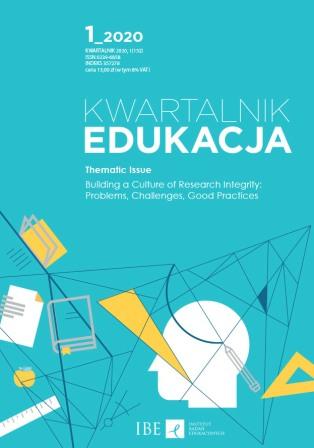
Keywords: academic honesty; ethical standards in psychology research; International Baccalaureate Diploma Programme (IB DP); Międzynarodowe Liceum Paderewski [Paderewski International High School]; scientific r
The considerations presented in this paper refer to the idea of developing academic honesty and introducing ethical standards in research among high school students of the International Baccalaureate Diploma Programme. The mission of the International Baccalaureate Organization is to form a better world through education. One of the ways to achieve this is to create international educational programmes that include the development of a respectful, principled and caring attitude among their students. Teaching about academic honesty and ethical standards in research as well as introducing these principles in everyday school life is the best way to put these rules into practice. In the following paper, the regulations of the International Baccalaureate on academic honesty in general and ethical guidance for psychology in particular will be presented, followed by examples of good practice from one of the IB schools, the Międzynarodowe Liceum Paderewski in Lublin, Poland.
More...
Keywords: bibliography; Fizyczne Ścieżki (Footpaths of Physics); physics; plagiarism; quoting; student competition; reproductivity;
With 15 years of experience, the jurors of a Polish student competition entitled Footpaths of Physics present their views on the copycat approach manifested by the contestants. The cases discussed are analysed in order to discover the reasons and results of such an attitude – connected to the competition itself, as well as to more general psychological and societal phenomena. The paper may be treated as a set of clues for people engaged in judging the work of students – such as teachers – but also for anyone working with exceptionally gifted or ambitious students.
More...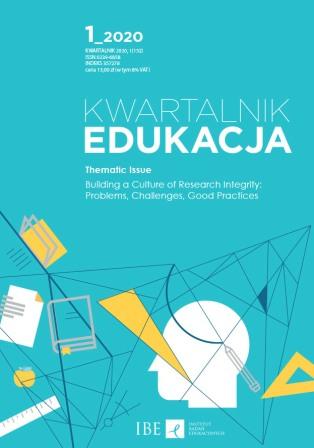
Keywords: Review; fourth volume; Encyclopedia; Adam A. Zych; Mirosław Nowak-Dziemianowicz;
Artykuł jest recenzją czwartego tomu Encyklopedii starości, starzenia się i niepełnosprawności (T–Ż). Pięć tomów encyklopedii powstało pod redakcją naukową Adama A. Zycha, refleksje końcowe napisała Mirosława Nowak-Dziemianowicz. Podobnie jak pozostałe tomy, również czwarty wydało katowickie Stowarzyszenie Thesaurus Silesiae – Skarb Śląski (recenzowany tom w 2017 r.).
More...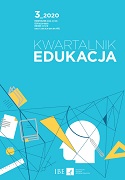
Keywords: ASDs students; teachers’ experience; teachers of students with SEN;
A teacher has an accumulation of knowledge, skills, as well as insight and provides support, which plays a critical role in student learning and achievement. My aim was to identify the characteristics of those who teach and care for students with ASDs in different types of schools. I researched teachers working with SEN students: 97 from integrative schools, 64 from mainstream schools, and 64 special school teachers. The data was collected using a questionnaire, the Two-dimensional Emotional Intelligence Inventory (DINEMO) and the Social Competence Questionnaire. The findings highlight that the majority of support and general teachers, despite less than five years of experience, declare the least difficulties in working with high-functioning children with ASDs. Special school teachers do not perceive the most difficulties in working not only with high-functioning students but also with low-functioning children affected by ASDs. The data showed that most teachers have extensive experience in working with both groups of students.
More...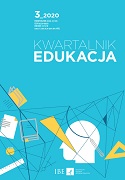
Keywords: disability; disabled person; patient; patient’s rights; pro futuro statement;
Every human being, both internationally and nationally, has a specific set of rights as a human being, human rights, and rights associated with a specific area of his/her life. As a pupil, he/she has the rights of a student, as a child, the rights of a child, as an employee – the rights of an employee, as a patient – the rights of a patient. Considering the issue of human rights communication with patient rights, the article presents the position of people with disabilities in Poland who participated in the implementation of the project “Implementation of the Convention on the Rights of Persons with Disabilities – A Common Matter” (2016–2018) on formally introducing to Polish legislation the pro futuro statement, containing the will of the patient regarding the treatment and use of persistent therapies in circumstances of the limited or lack of ability to make informed decisions in the indicated areas.
More...
Keywords: anatomy education; anatomical model; medical students;
Normal anatomy classes are a major element of the curriculum in dentistry studies. The anatomy of cranial nerves is one of the aspects of particular importance for future dentists. The transfer of knowledge regarding the anatomy and topography of cranial nerve nuclei is very difficult since the structures cannot be presented using an anatomical specimen. An anatomical brain stem model was developed by our team as a teaching aid for students studying the anatomy of cranial nerve nuclei. A survey to evaluate the usefulness of this model was conducted in a group of 100 first-year dentistry students. As shown by the study, classic anatomical models may provide important pillars when teaching anatomy to dentistry students.
More...